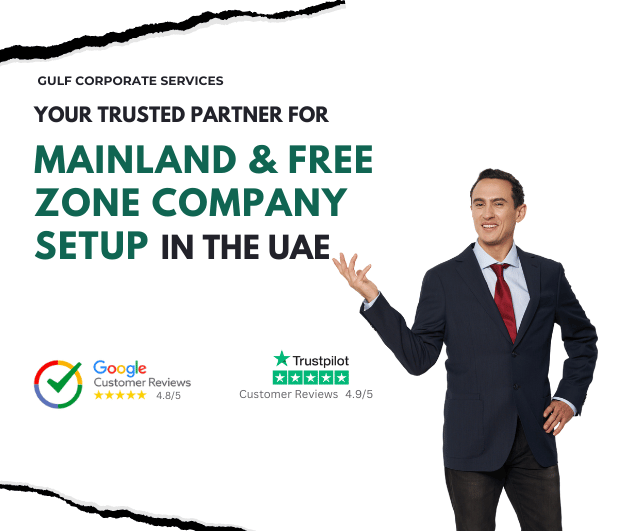
Dubai, a global hub for innovation and commerce, is one of the most attractive destinations for launching a business startup. With its strategic location, tax-free environment, and world-class infrastructure, Dubai offers unparalleled opportunities for entrepreneurs. This 1500-word, SEO-optimized article provides a comprehensive guide to starting a business in Dubai, covering licenses, costs, benefits, and more. Written in a human tone, this guide will help you navigate the process of setting up a business startup in Dubai and turn your entrepreneurial vision into reality.
Why Choose Dubai for Your Business Startup?
Dubai’s dynamic economy and investor-friendly policies make it a prime location for business startups. The city bridges East and West, offering access to markets in Europe, Asia, and Africa. Its tax-free environment, coupled with a robust business ecosystem, attracts entrepreneurs from around the globe. Whether you’re launching a tech startup, retail venture, or consultancy services, Dubai provides the infrastructure and support to thrive.
Strategic Location and Connectivity
Dubai’s geographic position ensures easy access to over 2 billion consumers within a few hours’ flight. World-class ports, airports, and logistics hubs like Jebel Ali Port and Dubai International Airport facilitate global trade. This connectivity is ideal for business startups in logistics, e-commerce, or international trade.
Tax-Free Benefits
One of Dubai’s biggest draws is its tax-free environment, with no corporate or personal income taxes. This allows business startups to retain more profits, reinvesting them into growth and innovation.
Supportive Business Ecosystem
Dubai’s government actively supports entrepreneurship through initiatives like the Dubai Future Accelerators and Smart Dubai. These programs provide funding, mentorship, and networking opportunities, making it easier for startups to scale.
Types of Business Licenses in Dubai
To operate legally, every business startup in Dubai requires a business license. The type of license depends on your business activity and location. Below are the main options.
Commercial License
A commercial license is for businesses involved in trading, such as import/export, retail, or e-commerce. This license suits startups selling goods or services in Dubai’s vibrant market. It’s issued by the Department of Economic Development (DED) for mainland businesses or free zone authorities for free zone setups.
Professional License
A professional license is ideal for consultancy services, such as legal, marketing, or IT consulting. It’s suitable for startups offering expertise-driven services and allows 100% foreign ownership in free zones like Dubai Internet City.
Industrial License
An industrial license is for startups involved in manufacturing or industrial activities. This license is less common for small business startups but is essential for ventures in sectors like food production or textiles, often based in free zones like Jebel Ali Free Zone.
Steps to Launch a Business Startup in Dubai
Starting a business in Dubai involves a clear process to ensure compliance with UAE regulations. Follow these steps for a successful setup.
Step 1: Define Your Business Activity
Identify your business activity, such as trading, consulting, or tech development. This determines your business license type and regulatory requirements. Prepare a business plan outlining your goals, target market, and financial projections.
Step 2: Choose a Business Structure
Decide whether to operate on the mainland, in a free zone, or as a freelancer. Mainland businesses can trade anywhere in the UAE, while free zones offer 100% ownership and tax benefits but restrict local trading. Freelance licenses are ideal for solo entrepreneurs in consultancy services.
Step 3: Select a Trade Name
Choose a trade name that complies with Dubai’s naming rules, avoiding offensive or religious terms. Submit the name for approval through the DED or free zone portal to ensure availability.
Step 4: Apply for Initial Approval
Submit an application for initial approval to the DED (for mainland) or a free zone authority (e.g., DMCC or Dubai Silicon Oasis). Provide documents like your passport, visa, and business plan. This step confirms your business activity is permissible.
Step 5: Secure Office Space
Mainland businesses require a physical office or shop, while free zones offer flexi-desks or shared spaces. Lease agreements must be registered with Ejari (for mainland) to comply with UAE regulations.
Step 6: Finalize Licensing and Visas
Submit your final business license application with all documents, including tenancy contracts and Emirates ID. Pay the license fee, and apply for employee or investor visas if needed. The DED or free zone authority will issue your license within 5–10 working days.
Costs of a Business Startup in Dubai
The cost of launching a business startup in Dubai varies based on the license type, location, and business scale. Here’s a breakdown of key expenses.
Business License Fees
- Commercial License: AED 10,000–20,000 annually for mainland; AED 15,000–25,000 in free zones.
- Professional License: AED 8,000–15,000 for mainland; AED 12,000–20,000 in free zones.
- Freelance License: AED 7,500–10,000, ideal for solo startups.
Additional Costs
- Office Space: Mainland offices cost AED 20,000–50,000 per year; free zone flexi-desks start at AED 10,000.
- Visa Fees: AED 3,000–5,000 per visa for employees or investors.
- Registration Fees: Trade name registration and Ejari cost AED 2,000–5,000.
- Compliance Costs: Legal consultations, audits, or certifications may add AED 5,000–10,000.
Key Requirements for a Business Startup in Dubai
Meeting Dubai’s regulatory requirements is critical for a smooth business setup.
Legal Documentation
You’ll need a valid passport, Emirates ID, and a No Objection Certificate (NOC) from a sponsor (for non-residents on mainland licenses). Companies require a memorandum of association and a business plan.
Capital Requirements
Some free zones, like DMCC, require minimum capital (e.g., AED 50,000), while mainland businesses may not. Ensure you have sufficient funds to cover setup and operational costs.
Compliance with UAE Laws
Business startups must adhere to UAE labor laws, anti-money laundering regulations, and industry-specific standards. For example, consultancy services may require professional certifications.
Benefits of a Business Startup in Dubai
Launching a business in Dubai offers numerous advantages for entrepreneurs.
Tax-Free Environment
Dubai’s tax-free policies allow startups to maximize profits, making it easier to reinvest in growth, marketing, or innovation.
Global Market Access
Dubai’s connectivity and free trade agreements provide startups with access to global markets, ideal for e-commerce, trading, or consultancy services.
Support for Entrepreneurship
Dubai’s business ecosystem includes incubators, accelerators, and networking events, helping startups connect with investors and mentors.
Challenges of a Business Startup in Dubai
Despite its advantages, launching a business in Dubai comes with challenges.
High Competition
Dubai’s vibrant market is highly competitive, requiring startups to differentiate through unique offerings, branding, or digital marketing.
Regulatory Compliance
Navigating DED or free zone regulations can be complex, especially for first-time entrepreneurs. Regular renewals and audits add to the workload.
Initial Costs
While Dubai is tax-free, setup costs like office rental and licensing can be significant for small startups with limited capital.
Tips for a Successful Business Startup in Dubai
To thrive in Dubai’s competitive market, consider these strategies.
Conduct Market Research
Understand your target audience and competitors in Dubai. Tailor your business startup to meet local demands, such as tech solutions or luxury services.
Leverage Digital Marketing
Optimize your website with SEO keywords like “business startup in Dubai” and use social media to build brand awareness. Platforms like LinkedIn are effective for consultancy services.
Partner with Experts
Work with business setup services to streamline licensing, visa processing, and compliance. They can also provide insights into Dubai’s market trends.
Conclusion
Launching a business startup in Dubai is a rewarding opportunity for entrepreneurs seeking to tap into a global market. With the right business license, a solid business plan, and a focus on compliance, you can establish a thriving venture in Dubai’s dynamic business ecosystem. Whether you’re starting a tech company, retail business, or consultancy services, Dubai offers the tools and support to succeed. Partnering with business setup services in Dubai, UAE, can simplify the process, ensuring your startup is compliant and positioned for growth.
FAQs
What is the best type of business license for a business startup in Dubai?
The best license depends on your activity: commercial licenses for trading, professional licenses for consultancy services, and industrial licenses for manufacturing.
How long does it take to launch a business startup in Dubai?
The process takes 1–4 weeks, depending on the license type, location, and document submission.
Can foreigners start a business in Dubai?
Yes, foreigners can enjoy 100% ownership in free zones or set up on the mainland with a local sponsor.
What are the costs of a business startup in Dubai?
Costs range from AED 7,500–35,000 for licensing, plus office rental, visas, and compliance fees.
Do I need an office for a business startup in Dubai?
Yes, a physical office or flexi-desk is required for mainland and free zone businesses, though freelance licenses may not need one.








